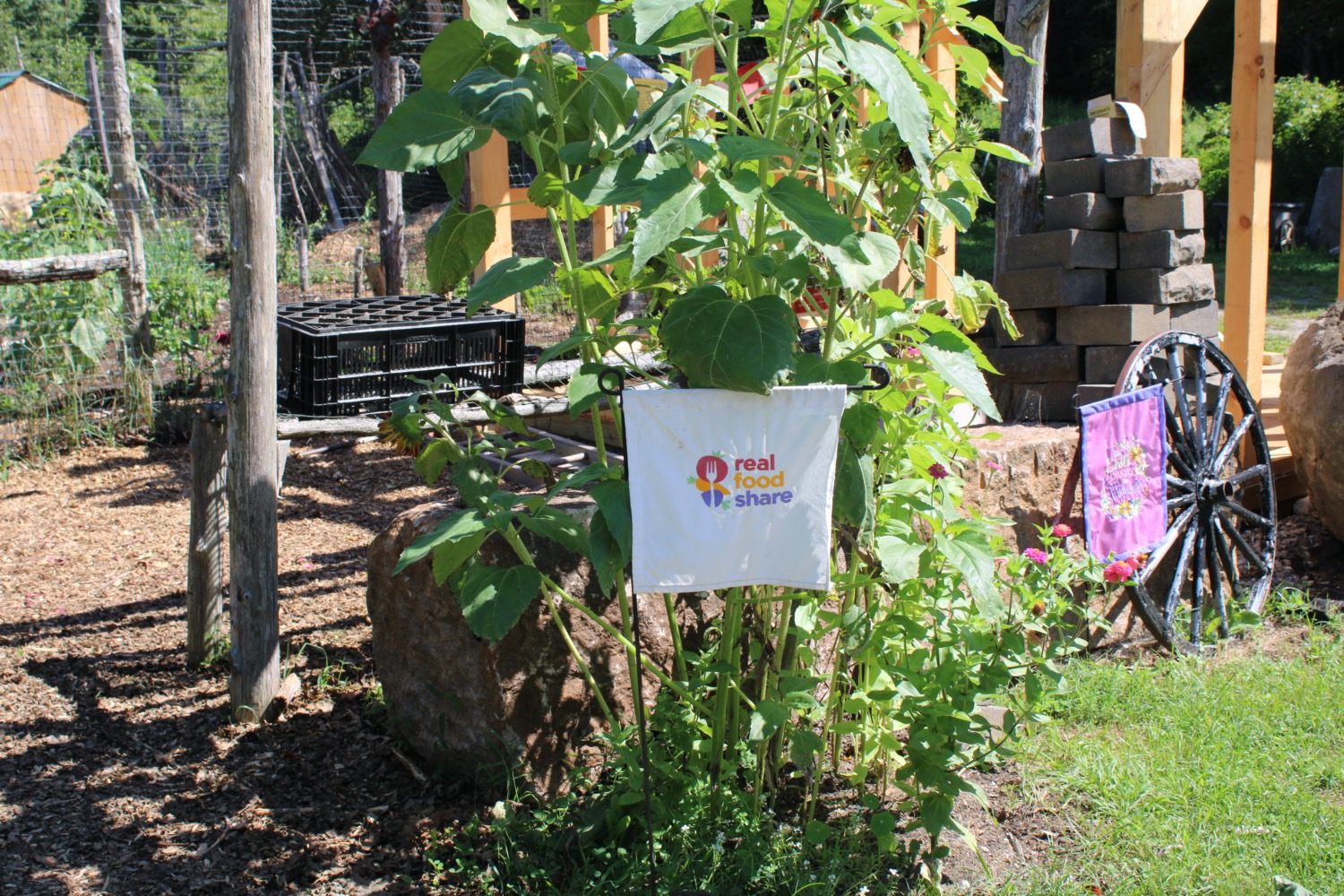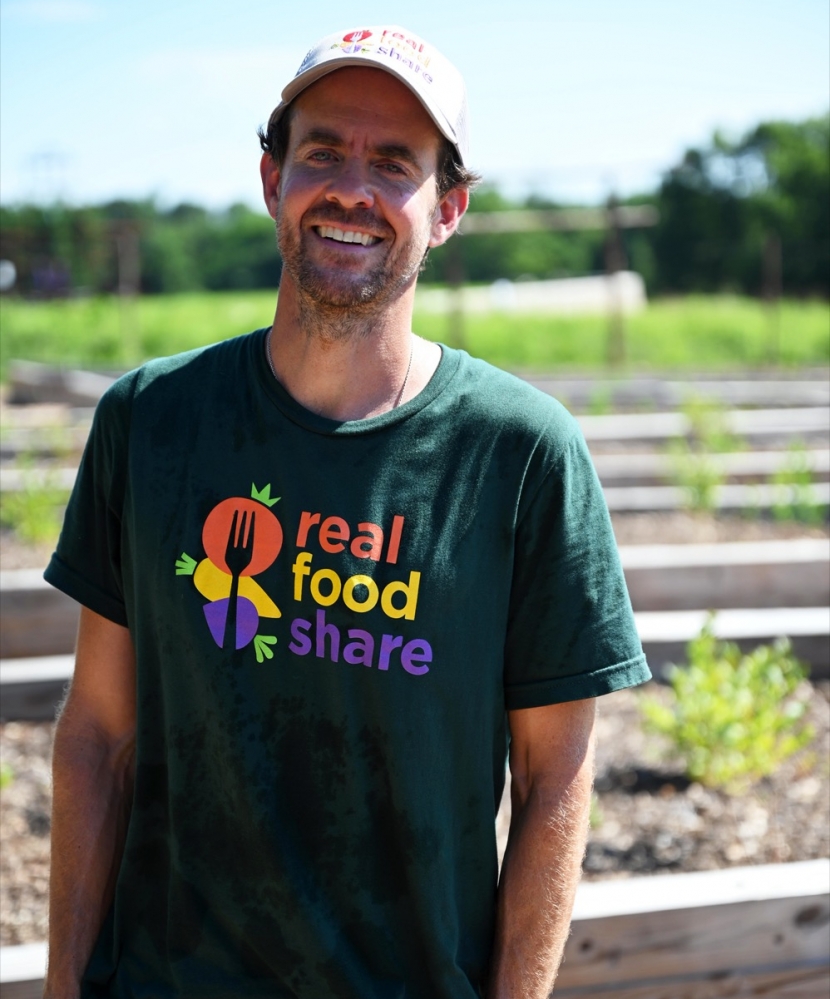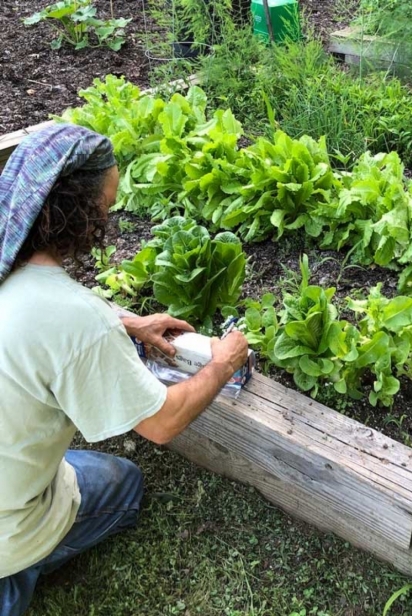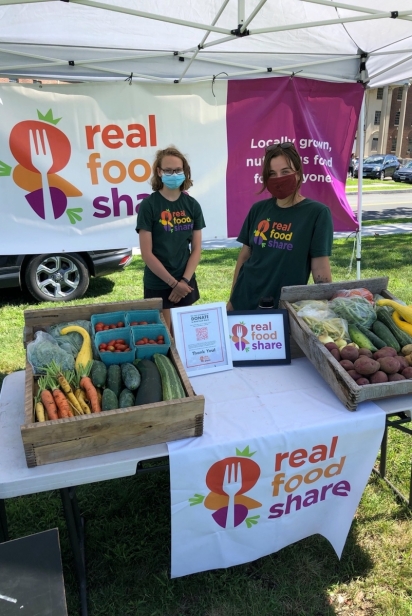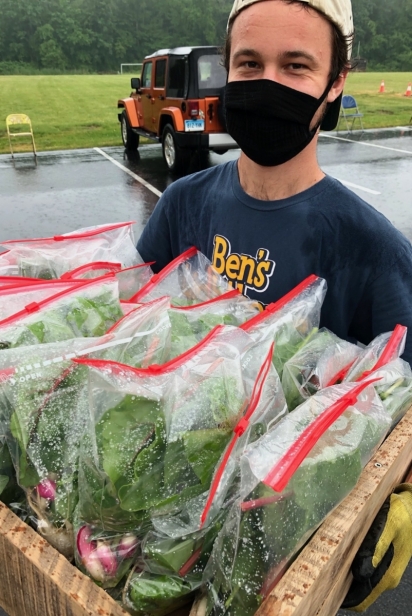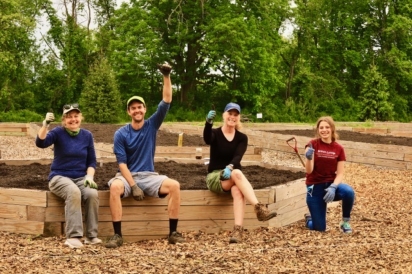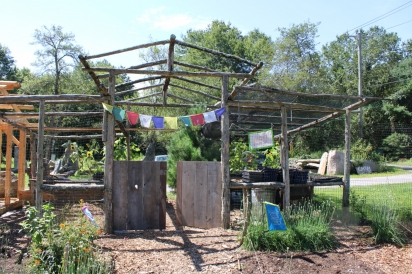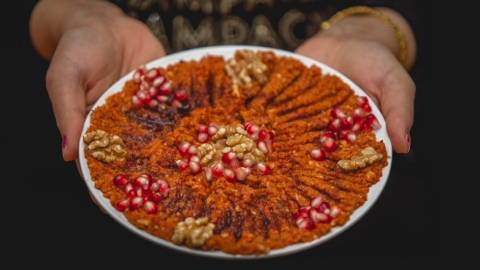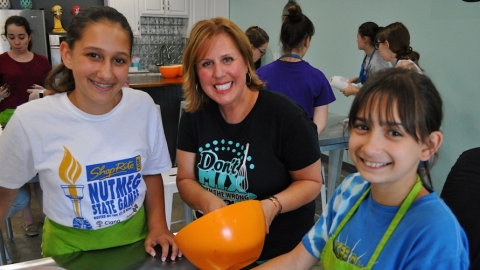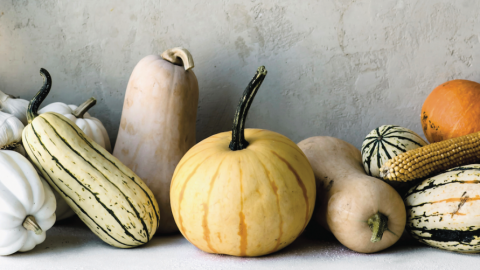Real Food Share
COVID-19 has shaken up the food chain of the country, exposing weaknesses in an industrial agriculture system that saw shortages of everything from flour to meat. For those already food insecure, finding the next meal grows ever harder, let alone one made with fresh, nutrient-rich produce.
This is where Newtown-based nonprofit Real Food Share steps in. It posits a radical vision of hyperlocal food systems, with neighbors helping neighbors in times of need by growing and donating produce locally. With large gardens in two locations in Newtown, Real Food Share has donated thousands of pounds of produce to local homeless shelters and food banks/pantries, in addition to presence at local farmers markets; not bad for an organization only a year and a half old.
Real Food Share is young, but it comes from insights years in the making for founder Sean Fitzpatrick. “It started as a kind of transitional project for myself. I’ve been involved with nutrition coaching for 20 years. As I was trying to figure out what my next chapter would be, I knew it would be food related, and I knew it was going to be service related.” Driving by a community garden in disrepair, Fitzpatrick was struck with an idea – what if that garden could be used to bring highly nutritious, local, fresh produce to those in need and practice regenerative agriculture in the process?
With his nutrition background, it was easy for Fitzpatrick to understand the potential, but he also had a personal stake. Removing processed foods from his diet had alleviated some chronic skin and stomach issues, and he wanted to bring the same food medicine to those without the resources he had. “Newtown has poverty rates of well under 10%, but at any point, you can have food insecurity rates of up to 30%, and when you consider neighboring towns like Bridgeport and Danbury, the numbers get crazy,” he explains. “A lot of people that suffer the most with chronic diseases don’t have access to good food. The power of super-local, well-grown, organically grown, regeneratively grown, nutritious, fresh produce is the universal link for personal healthcare. It hits so many boxes across the board.” And so Real Food Share was born.
After taking some classes on regenerative and organic farming, Fitzpatrick realized that he did not, in fact, have to come from seven generations of farmers to start his own agricultural initiative. “Farming and growing food isn’t this big, mysterious thing. You don’t have to be a farmer for 100 years to be good at it. It just takes a season or two of practice before you get really good at it.” After he received the go-ahead to take over the garden, he tapped into the community and found a host of willing hands who wanted to be involved. “There’s a lot of people out there who say, ‘I would love to do this,’ but they don’t really have the avenue to do so.” He is quick to credit the crew of volunteers who help make Real Food Share possible.
Securing the second space, at Catherine Violet Hubbard Animal Sanctuary, also in Newtown, proved easy and exciting. It features over a football field’s worth of raised beds, all ready to be planted. However, their second season presented an incredible hurdle: COVID-19. It was a challenge the volunteers met, who continued to show up, safely, for each other and the community. “We still had a good number of volunteers – I was nervous that it was going to be zero – but people who felt safe being outside…were on task and doing the best [they] could. We’re already at over 5,000 pounds, and by the end of the season, we’ll be looking at 13,000 pounds of food donated.”
Donations go to local food pantries and shelters, like the Newtown Food Pantry; the donations are timed for said pantries’ own distribution days to maximize freshness for recipients. If the organization can find additional funding, there are also plans to create cold storage to prolong the shelf life of produce after harvest.
Besides the act of growing, donating, and vending produce at farmers markets surrounding Newtown, Real Food Share is coming into its own as part of the broader farming and social service community of the area. Fitzpatrick wants to function as a distributor for other farms, in addition to serving as a general food hub for the region, aggregating recipes, nutrition information, and a schedule of markets and pantries for wide distribution. On a smaller scale, this has created the 1000 Gardens Project, in which Newtown and surrounding residents pledge a portion of their own produce to Real Food Share to be donated to pantries in the region. “Home gardens are a huge untapped resource,” Fitzpatrick says. “People have these home gardens with food falling off the vines, and it just goes to waste. It’s just a huge part of fresh food waste that we’re going to try to tap into.”
Fitzpatrick sees organizations and food systems like this not just as the future of agriculture, but as a viable career path for young people. “How do we get 21-year-olds to not go into finance?” By showing them how to turn growing food into a career path – particularly one that goes beyond the bounds of traditional farming avenues – by incorporating social and community concerns to create a broad, purposeful, and mission-driven occupation. Fitzpatrick is eager for mentorship; “If there’s anyone out there who wants to do this, come to me, and we’ll help you get started.” Real Food Share is truly living up to its name.
> Real Food Share: Newtown; 917-575-6811


